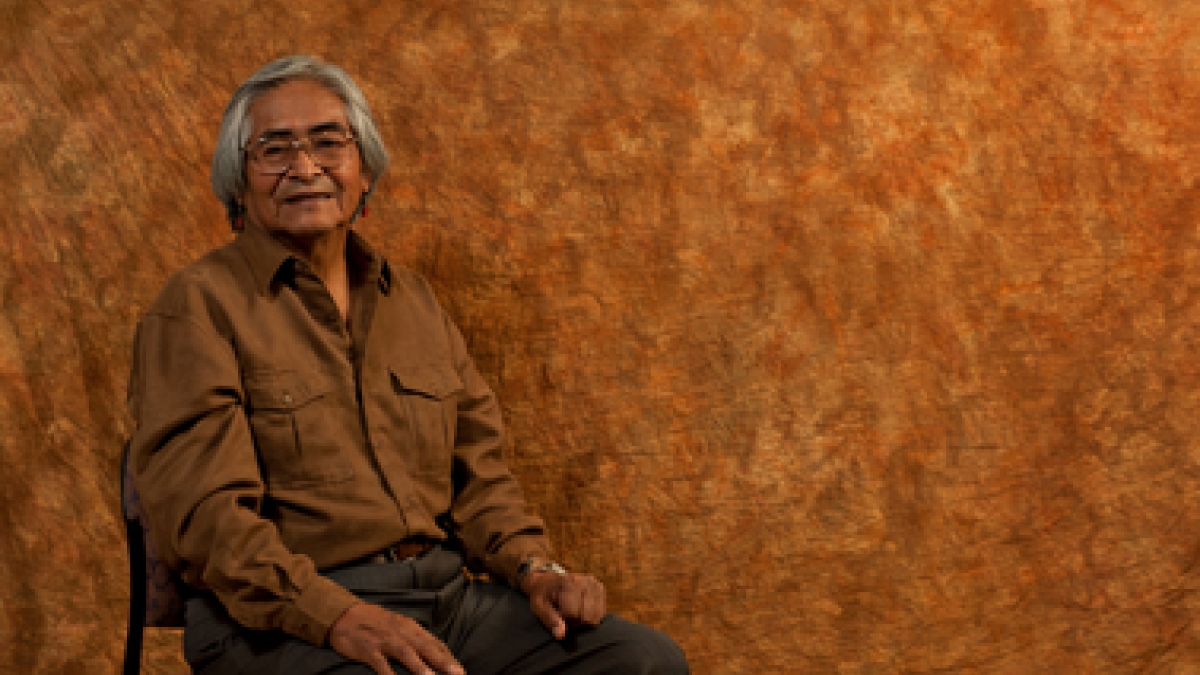World-renowned Native poet donates archive to ASU Libraries, Labriola Center

In a coup for researchers of Native American culture, renowned Indigenous poet and writer Simon J. Ortiz has donated an archive of his personal papers to Arizona State University. Ortiz’ papers comprise a significant acquisition by the Labriola National American Indian Data Center in Hayden Library on the Tempe campus, where the collection will be housed.
Ortiz, a Regents’ Professor of English and American Indian Studies, is of Acoma Pueblo heritage. His is a major voice in what is termed the “Native American Renaissance,” a 20th century literary movement. The breadth and scope of this collection will greatly add to scholars’ overall understanding of Ortiz’s substantial body of work.
The archive includes Ortiz’s personal and writer’s journals, manuscripts and early drafts, as well as sections of Ortiz’s personal library. It covers the period in the 1970s and 1980s during which Ortiz lived and taught in California at the College of Marin and the San Francisco Arts Institute, until his return to New Mexico to teach at the University of New Mexico in Albuquerque. Speaking of the books he is donating, Ortiz mused, “The reading regimen of a writer is really everything as we go through our lives. I don’t buy a book to substantiate what I’m doing, but because I’m feeling compelled, or perhaps whimsical. Then, the book becomes a part of the journey.”
Joyce Martin, curator of the Labriola Center, says that the Ortiz Collection at ASU will have “international significance while functioning as a wonderful research tool for students and faculty around the world who are exploring Indigenous literature.”
Fellow Pueblo scholar Greg Cajete (Santa Clara Pueblo) assessed the contributions of Ortiz’s writing as it speaks of, and for, Indigenous people: “Indigenous community is a story that is a collection of individual stories ... and when a story finds that special circumstance, when its message is fully received, it induces a direct and powerful understanding. It becomes real teaching. This is the essence of what Simon achieves through his poetry, his fiction, and his nonfiction.”
Ortiz reflected upon his reasons for donating his archive to ASU: “I have been part of the process, the dynamic, and the creative output of what has become known as Indigenous literature, and therefore felt it was important to make this material accessible by providing it to the Labriola Center. Indigenous knowledge creates a foundation, the elemental basis that informs the general body of knowledge of the Americas. The keystone of this foundation is sourced in Indigenous oral tradition, which is expressed in my writing.”
When asked about his choice of ASU in particular to house his papers, Ortiz noted eloquently, “I’m a believer in public institutions. I believe in ASU because the people benefit – here, at the university, in Arizona, in the Southwest, in our community.”
The Ortiz Archives have already begun to attract doctoral students, with more expected when the archives are completed.
The Labriola National American Indian Data Center, part of the ASU Libraries, is a research collection international in scope that brings together in one location current and historic information on government, culture, religion and world view, social life and customs, tribal history, and information on individuals from the United States, Canada, Sonora, and Chihuahua, Mexico.
The Department of English and the American Indian Studies Program are academic units in the College of Liberal Arts and Sciences at ASU.
Written by Paris Masek and Cynthia Hogue
Media contact:
Kristen LaRue, Kristen.LaRue@asu.edu
480-965-7611
Department of English, CLAS